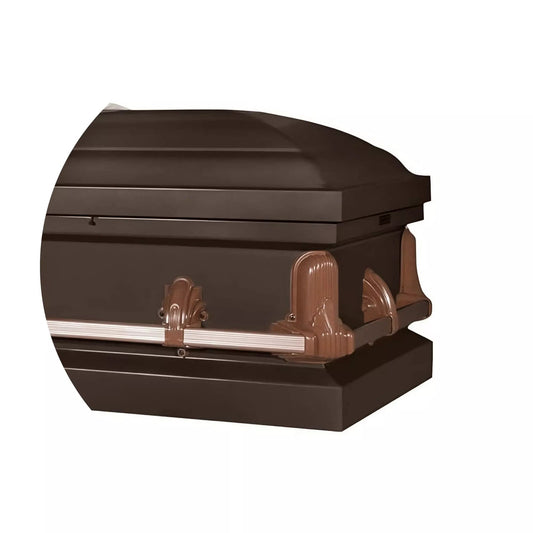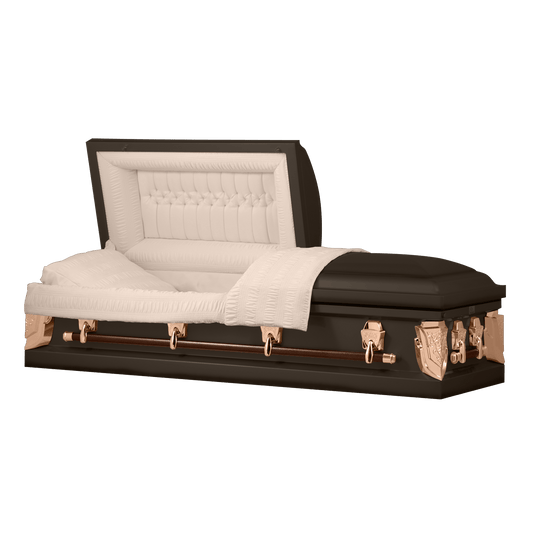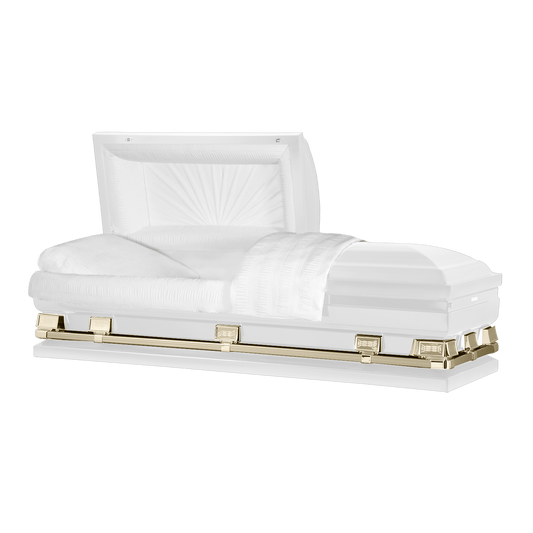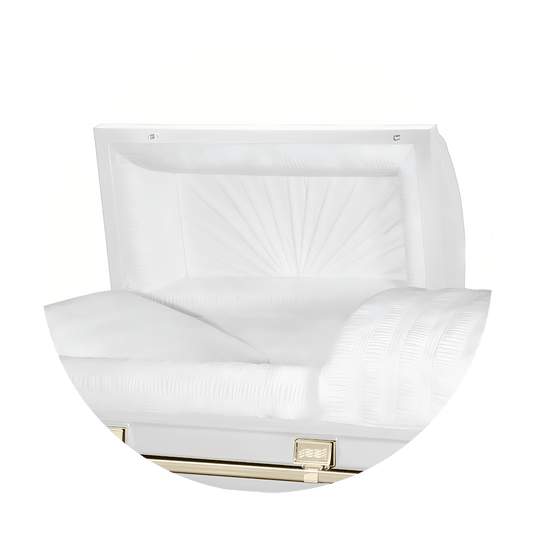What Is A Closed Casket Funeral?
In a closed casket funeral for the deceased, the lid of the casket remains closed throughout the service. Mourners, including friends and family of the deceased will not be able to view the body at any point during the service.
Usually, it is the close family members of the deceased individual who often get a say on whether the funeral should be a closed casket funeral or an open casket funeral. However, there may be a few cases, where the individuals themselves decide on having a closed casket funeral and communicate the same to their family.
And since the casket is never opened during or after the funeral service and is instead cremated or buried directly, many choose to not embalm the body of the deceased. That said, there are a few who prefer to still embalm the deceased individual’s body even though the funeral is a closed casket one.
Learn How To Seal A Casket
Closed Casket Vs Open Casket Funerals: The Key Differences
If you’re torn between an open casket and closed casket funerals, getting to know the difference between the two can help give you some clarity. Here’s a quick glimpse of a couple of key differences between these two types of funerals.
1. Position of the lid - As you already know, the lid of the casket is never opened during a closed casket funeral. On the contrary, in an open casket funeral, the lid remains open until the time of burial or cremation. This allows family members, friends, and other mourners to get a glimpse of the deceased individual before their final rites.
2. Funeral costs - Open casket funerals are almost always more expensive than closed casket funerals. One of the primary reasons for this has to do with the fact that a lot of time and effort goes into preparing the body of the deceased for viewing. The deceased individual has to be properly embalmed and dressed before having an open casket funeral. However, this is not the case with closed casket funerals. Very rarely do family members insist on embalming or dressing the body seeing as the casket lid would be closed throughout the service. This ultimately leads to lower funeral costs.
Closed Casket Funeral Traditions:
Closed casket funerals have several traditions associated with them. These may include:
- Memorial Photos: Displaying photographs of the deceased at various stages of their life.
- Eulogies: Family and friends sharing memories and stories about the deceased.
- Symbolic Gestures: Such as placing a favorite item or memento in the casket.
Closed Casket Funeral Etiquette:
When attending a closed casket funeral, it's important to adhere to certain etiquette:
- Respect the Family's Wishes: If the family has chosen a closed casket, respect their decision without questioning it.
- Offer Condolences: Express your sympathy and support to the grieving family.
- Dress Appropriately: Wear respectful and subdued attire.
- Be Mindful of Words: Choose your words carefully when speaking to the family.
When To Choose A Closed Casket Funeral?
There are many reasons why family members of the deceased may want to opt for a closed casket funeral for their loved ones. Let’s take a look at a few of the more compelling reasons for conducting such funerals.
No matter the kind of funeral you ultimately decide to hold for your loved ones, you can find the right casket online for your loved one at Titan Casket. We specialize in a wide range of caskets made from wood, steel, or eco-friendly materials. When buying a casket online on Titan Casket, you not only get to save money, but also get free shipping on all orders as well.
Plan Your Farewell with Grace – Our Pre-Planned Caskets Offer Peace of Mind

![Upgrade to Premium Weight [18-gauge steel]](http://titancasket.com/cdn/shop/products/casketthicknesswithnumbers.png?v=1680642906&width=533)









